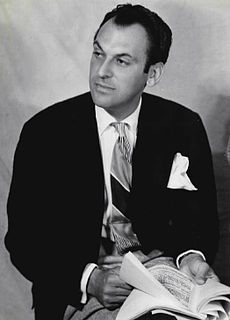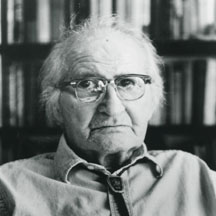A Quote by Irwin Shaw
The romantic idea is that everybody around a writer must suffer for his talent. I think a writer is a citizen of humanity, part of his nation, part of his family. He may have to make some compromises.
Related Quotes
It's akin to style, what I'm talking about, but it isn't style alone. It is the writer's particular and unmistakable signature on everything he writes. It is his world and no other. This is one of the things that distinguishes one writer from another. Not talent. There's plenty of that around. But a writer who has some special way of looking at things and who gives artistic expression to that way of looking: that writer may be around for a time.
It's part of a writer's profession, as it's part of a spy's profession, to prey on the community to which he's attached, to take away information - often in secret - and to translate that into intelligence for his masters, whether it's his readership or his spy masters. And I think that both professions are perhaps rather lonely.
Detach the writer from the milieu where he has experienced his greatest sense of belonging, and you have created a discontinuity within his personality, a short circuit in his identity. The result is his originality, his creativity comes to an end. He becomes the one-book novelist or the one-trilogy writer.
The writer’s job is to write with rigor, with commitment, to defend what they believe with all the talent they have. I think that’s part of the moral obligation of a writer, which cannot be only purely artistic. I think a writer has some kind of responsibility at least to participate in the civic debate. I think literature is impoverished, if it becomes cut from the main agenda of people, of society, of life.
It is easier for the reader to judge, by a thousand times, than for the writer to invent. The writer must summon his Idea out of nowhere, and his characters out of nothing, and catch words as they fly, and nail them to the page. The reader has something to go by and somewhere to start from, given to him freely and with great generosity by the writer. And still the reader feels free to find fault.
The writer is a definite human phenomenon. He is almost a type - as pugilists are a type. He may be a bad writer - an insipid one or a clumsy one - but there is a bug in him that keeps spinning yarns; and that bulges his brow a bit, narrows his jaws, weakens his eyes and gives him girl children instead of boys. Nobody but a writer can write. People who hang around writers for years - as producers did - who are much smarter and have much better taste, never learn to write.
In the greatest fiction, the writer's moral sense coincides with his dramatic sense, and I see no way for it to do this unless his moral judgement is part of the very act of seeing, and he is free to use it. I have heard it said that belief in Christian dogma is a hindrance to the writer, but I myself have found nothing further from the truth. Actually, it frees the storyteller to observe. It is not a set of rules which fixes what he sees in the world. It affects his writing primarily by guaranteeing his respect for mystery.
The writer is a spiritual anarchist, as in the depth of his soul every man is. He is discontented with everything and everybody. The writer is everybody's best friend and only true enemy-the good and great enemy. He neither walks with the multitude nor cheers with them. The writer who is a writer is a rebel who never stops
All nonfiction writers, whether they like it or not, are translators. The translator is the perfect journalist. The best journalism endeavors to convey an essential idea or story to an audience that knows very little about it, and that requires translation. To do this successfully, the writer must filter the idea through the prism of his eye, and his mind, and his writing style.







































